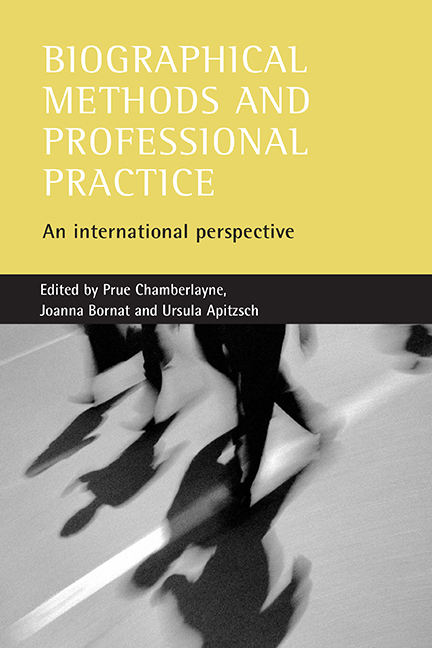Book contents
- Frontmatter
- Contents
- Notes on contributors
- one Introduction
- Part One Putting the subject into policy and practice
- Part Two Subjectivity in context
- Part Three Self-awareness in research and practice
- Part Four Recognising trajectories of disempowerment
- Part Five Biographical resources in education and training
- Index
thirteen - Ghost writers: using biographical methods across languages
Published online by Cambridge University Press: 20 January 2022
- Frontmatter
- Contents
- Notes on contributors
- one Introduction
- Part One Putting the subject into policy and practice
- Part Two Subjectivity in context
- Part Three Self-awareness in research and practice
- Part Four Recognising trajectories of disempowerment
- Part Five Biographical resources in education and training
- Index
Summary
What this volume demonstrates, as did The turn to biographical methods in social science(Chamberlayne et al, 2000), is that there are undoubted benefits in research with people who are different to you in terms of widening perspectives and horizons. When language is a barrier to communication, many researchers and service providers employ translators and interpreters to try to harvest these benefits. However, ensuring that perspectives other than that of the researcher can be heard is not a straightforward task. In this chapter, I am interested in the implications, when translating, of Spivak's (1993, p 189) call to “discriminate on the terrain of the original”, and the value of using biographical methods to attempt to do this. For researchers, these issues matter because, as I argue later in this chapter, the choice of interpreter or translator influences the research ‘findings’. The service provider is also reliant on the person acting as a gobetween for the two languages. Ultimately, the kind of service a non-English speaker receives may depend on whether or not service providers have addressed some of the issues raised in this chapter.
Here, I ask: does it matter what languages we are discussing? In other words, is there a politics of translation? I use an example from my work with Polish communities to discuss the value of biographical methods in this area, as well as to point out some of the issues involved in the approach I have chosen.
Much of what is published about using interpreters is a sort of practical ‘how to’ list, rather than a concern with the methodological implications of employing an interpreter (see, for example, Phelan and Parkman, 1995; Johnson et al, 1999; and for an exception, Edwards, 1998). The insights researchers have gained from looking at cross-language communication in the field of translation as an active process are rarely applied to interpretation across languages, although there are undoubted lessons to be learned from such work. I use the term ‘translation’ throughout to include both written and oral accounts, since researchers often treat both in the same non-problematic way. The written translation is usually all the researcher has to represent an interview.
- Type
- Chapter
- Information
- Biographical Methods and Professional PracticeAn International Perspective, pp. 193 - 202Publisher: Bristol University PressPrint publication year: 2004



